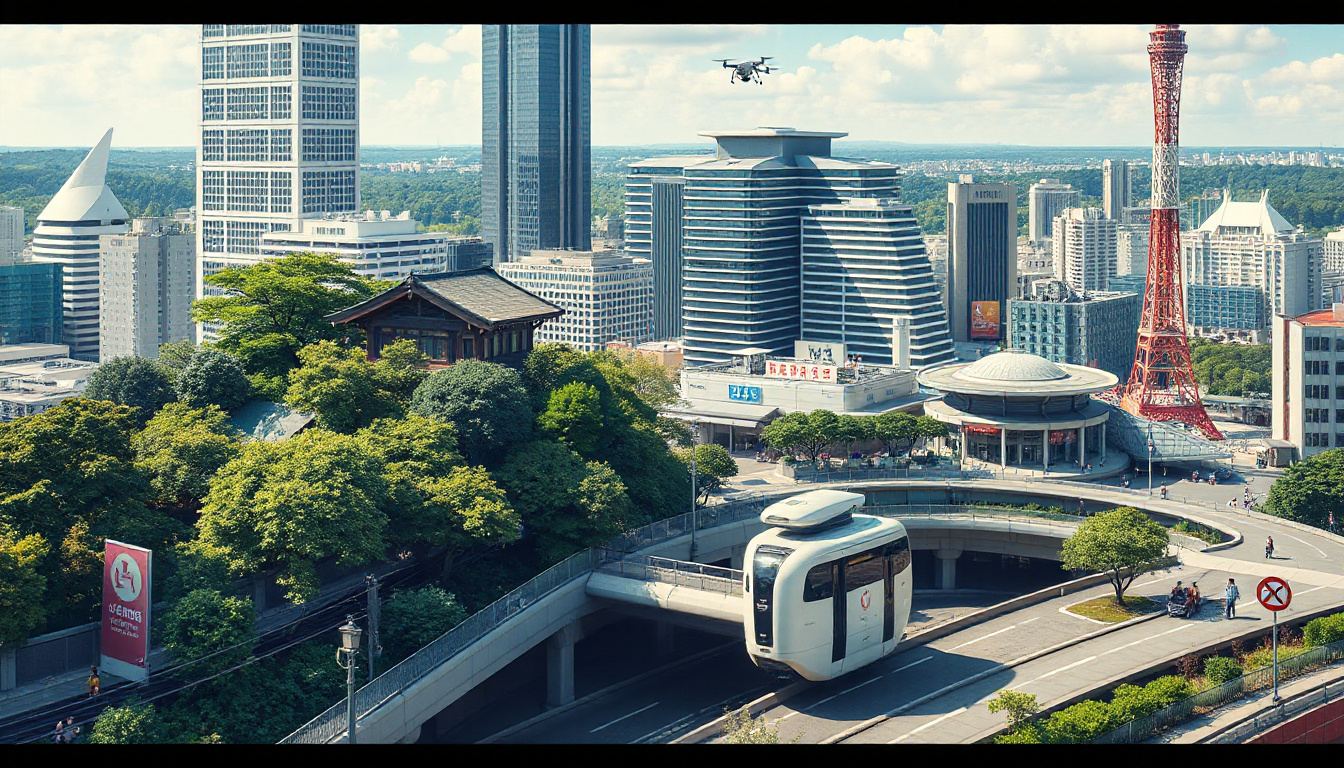Physical Address
304 North Cardinal St.
Dorchester Center, MA 02124
Physical Address
304 North Cardinal St.
Dorchester Center, MA 02124

As Japan stands on the precipice of technological revolution, the emergence of OpenAI’s Economic Blueprint symbolizes a groundbreaking strategy poised to reshape the nation’s economic landscape. This innovative framework is designed not only to leverage the immense potential of artificial intelligence (AI) but also to ensure that the benefits extend to every corner of society. In a time where Japan faces unique socio-economic challenges, the Blueprint promises to inject over ¥100 trillion into the economy, pushing the GDP upwards by an impressive 16%. Through a commitment to inclusive access, strategic investment in infrastructure, and a robust focus on education and lifelong learning, OpenAI is setting the stage for a future where AI not only enhances efficiency but also enriches the cultural and community fabric of Japan. In this article, we will delve deeper into the Blueprint’s three pillars, explore the hurdles and possibilities for its implementation, and discuss how Japan can emerge as a global leader in ethical AI governance.

OpenAI’s Japan Economic Blueprint represents a transformative vision that aligns with the rising tide of artificial intelligence (AI) technology and its potential to reshape the nation’s economic landscape. At this pivotal moment in history, the Blueprint outlines three foundational pillars designed to maximize the societal benefits of AI. The first pillar, Inclusive Access to AI, seeks to democratize AI technology, ensuring that all layers of society—from students and educators to small business owners—are equipped to engage with and benefit from AI advancements. This approach enhances not only technological literacy but also economic inclusion, allowing Japan to harness the full potential of its diverse population in the AI revolution.
The second pillar, Strategic Infrastructure Investment, emphasizes the critical need for developing robust AI-related infrastructure. This includes the establishment of advanced data centers and the promotion of semiconductor production, which are essential for supporting AI innovations. Moreover, the Blueprint advocates for integrating renewable energy sources within this infrastructure framework, thus marrying technological progress with environmental stewardship. This forward-thinking strategy aims to bolster Japan’s position as a hub for AI development while ensuring sustainability.
Lastly, the Blueprint underscores the importance of Education and Lifelong Learning. In an AI-driven economy, continuous skill development is paramount. As such, the Blueprint advocates for comprehensive educational initiatives aimed at equipping individuals across all age groups with necessary skills and knowledge to thrive in a technology-centric world. Such focus on education not only prepares the current workforce but also cultivates future generations capable of innovating and driving economic growth.
Japan’s varied sectors, including manufacturing, healthcare, and education, are already witnessing the transformative impact of AI technologies that streamline operations and enhance quality of services. As AI continues to evolve, it holds the potential not only to enhance economic efficiency but also to preserve and enrich Japan’s cultural and community identity.
To realize these ambitions outlined in OpenAI’s Blueprint, consistent and sustained investments in both digital and physical infrastructures are vital. The report advocates for a collaborative approach among government entities, industries, and academic institutions, ensuring that technological advancements maintain alignment with ethical standards and environmental goals. Additionally, Japan has the opportunity to emerge as a global leader in ethical AI governance, leveraging its rich tradition of innovation and strong intellectual property protection. Ultimately, OpenAI’s Japan Economic Blueprint offers a dynamic, inclusive, and strategic vision for the country’s future, positioning Japan to harness AI-driven opportunities for collective economic prosperity.
To fully realize the potential outlined in OpenAI’s Japan Economic Blueprint, it is crucial to address the inherent challenges that accompany rapid technological advancements. One of the most significant hurdles is ensuring that the workforce is adequately prepared for the shift towards an AI-centric economy. This includes addressing the skills gap that may exist in various sectors as older job roles evolve or become obsolete. Continuous education and partnerships between educational institutions and industries can facilitate the development of curricula that meet the dynamic needs of the job market. Moreover, fostering an innovative culture that encourages experimentation and the acceptance of failure can inspire startups and established companies alike to pursue AI technologies fearlessly. By overcoming these challenges, Japan can take full advantage of the opportunities presented by AI, nurturing a resilient economy that thrives on creativity and collaboration.